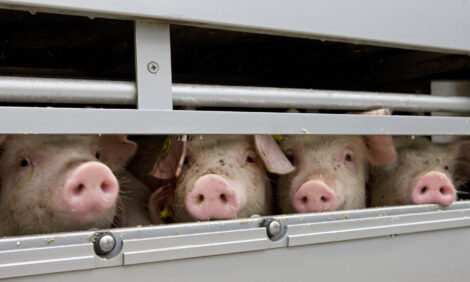



Controversial Pig Farming Zone to Open Next Year
BORNEO - A new pig farming hub is due to start operation next year but farmers are divided on whether they wish to move there.The centralised pig farming area located in Pasir Puteh, Simunjan, about 120km from Kuching, will be in operation once the biogas waste treatment plant is completed, possibly by next year, reports Borneo Post.
All pig farmers in Kuching and Samarahan are expected to move to the 2,000-acre farm equipped with modern facilities, costing about 163 million ringgit (MYR), making it the biggest pig farm in Sarawak.
Minister of Environment and Public Health, Dato Sri Wong Soon Koh, when contacted recently, told the newspaper that the MYR93 million biogas waste treatment plant was 70 per cent complete.
He said: "Now we are waiting for the plant to be completed. After that, we will make sure that the facilities are running before all the farmers can move there.
"We have also held several dialogues with the pig farmers from both Kuching and Samarahan divisions regarding the move but more discussions will need to be held."
Mr Wong, who is also Second Finance Minister, disclosed that 12 farmers have volunteered to move to the new site.
He said: "The ministry has issued letters to 72 licensed pig farmers in these two divisions, informing them that they can move to the site."
Mr Wong encouraged all the pig farmers to move together as it would save them cost and time.
"And at the same time they could assist each other especially when problems arise," he said.
Meanwhile, the chairman of Kuching and Samarahan Pig Farmers Association, Dr Ng Siew Tsing, confirmed that the government had issued letters to the pig farmers.
A piece of land will be given to individual pig farmers to set up their business and they have been briefed on the breeding conditions, he revealed.
"The only thing they have not been told is the amount they need to pay in land premium once they occupy the land," he said.
However, it was understood that not all pig farmers have agreed to move as there were many aspects to the shift that had to be considered and solved beforehand, especially the cost of moving.
When Borneo Post reporters approached a pig farmer who only wanted to be identified as Chai, a member of the Kuching and Samarahan Pig Farmer Association, they were informed that he was unlikely to move due to the high cost.
"The estimated moving cost is about MYR3 million, which we have to bear on our own. Also, our land will then be abandoned," he said.
The cost of moving, Mr Chai pointed out, covered the setting up of their own facilities which included construction and material, as well as the construction of in-roads to the given land and transportation.
He said: "We are slowly shrinking our pig farming business now. The cost of moving is too high and we are unable to afford it."
While having to bear the high cost of moving, Mr Chai also noted that the investment returns would be slow and thus "not ideal".
He said: "The first generation pigs cannot be sold and piglets have to be purchased from the ministry but farmers could probably acquire it cheaper outside. The price is being controlled by the authorities."
On the size of land given to individual pig farmers, Mr Chai said the land would be apportioned based on productivity which he thought unfair and suggested that a better evaluating system was needed.
"For instance, if we have 30 sows, a land for that size will be given. So it will be hard if we want to expand," he added.
While it is good to have a centralised pig farming area, Mr Chai thinks it would have negative impact on the business, especially sellers having to travel to the outskirts of town to source for it.
"Meantime, we will have to wait for meetings to be called where these issues will be highlighted to find the solutions," he told Borneo Post.








